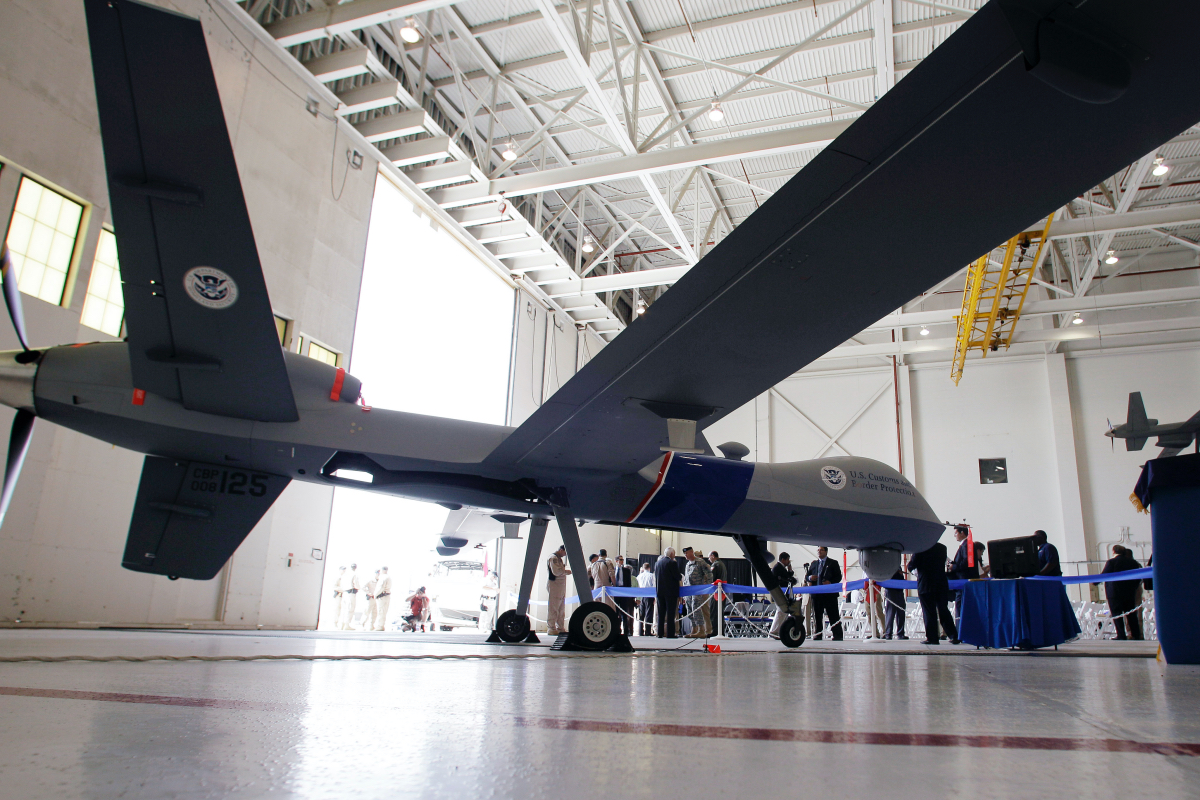

A MQ-9 Predator B, an Unmaned Aircraft System, is unveiled at a ceremony, Wednesday, September 8, 2010, in Corpus Christi, Texas. (AP Photo/Eric Gay)
A report published last week by the Immigrant Defense Project, together with the Transnational Institute, describes how the term “smart borders” is really just a euphemism for a tough border policy bolstered by technology.
“Smart borders involve the expanded use of surveillance and monitoring technologies including cameras, drones, biometrics and motion sensors,” write the authors of “Smart Borders or a More Humane World?,” which follows the growing use of smart borders after the attacks of September 11, 2001, and rhetoric used by the federal government to make smart borders seem more humane than physical barriers.
The report centers on five negative consequences linked to the rise in smart borders: “a boom in the border and surveillance industrial complex; the growing policing of immigrants and their communities, the borderlands, and society on a global scale; the separation and undermining of families and communities; the maiming and killing of large numbers of border crossers; and the exacerbation of socioeconomic inequality.”
Using graphs and drawing on case studies from Southern California, Mississippi, the Tohono O’odham Nation in southern Arizona, Honduras, and the European Union, the report shows how the increasing militarization of border security through the use of advanced technology has “expanded a web of surveillance into the nation’s interior” and worsened worldwide inequality and the displacement caused by the global climate crisis.
Massive investments into securing borders in order to control immigration, the authors argue, divert time, money and thought away from solving the nation’s and the world’s more pressing issues, including increasing threats from inequality, disease and the changing climate.
The report charges the border security industry of promoting and profiting from “a US-government-constructed crisis” at the border that demands more funding to combat terrorism as well as stem the tide of asylum seekers.
Some of the key data featured in the report:
-
Since the founding of the Department of Homeland Security in 2003, CBP and ICE budgets have almost tripled
-
The budget for border policing has gone up more than 6000% since 1980
-
The US government has spent $55.1 billion in 105,000 CBP and ICE contracts to private corporations, 2008-2020
-
13 companies that play a pivotal role in the US border industry gave more than $40 million to Democrats and Republicans in the 2020 election cycle
“We can either ask how to build a smart border or how to pursue the best path to bring about a just and environmentally sustainable world,” the authors of the report write. “We cannot have both because the project of hard, formidable borders -’smart’ or otherwise- is antithetical to a just world; it is one consistent with a world of increasingly invasive and pervasive surveillance and policing in the service of the maintenance of global apartheid.”


